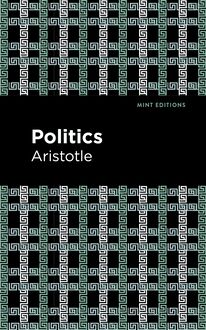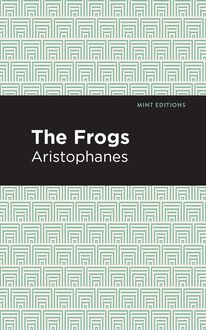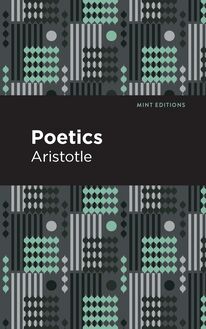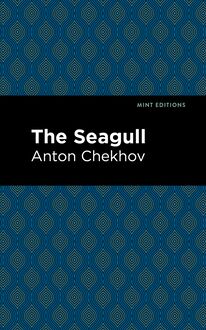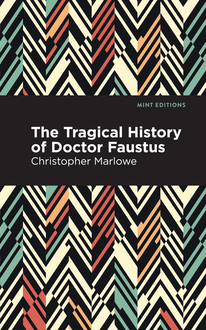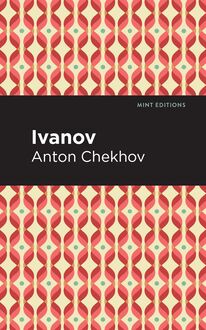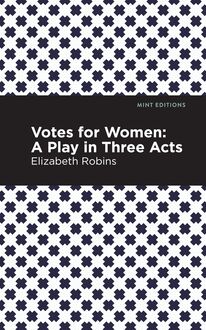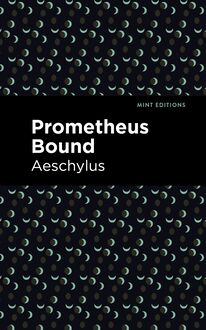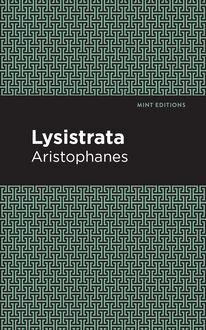-
 Univers
Univers
-
 Ebooks
Ebooks
-
 Livres audio
Livres audio
-
 Presse
Presse
-
 Podcasts
Podcasts
-
 BD
BD
-
 Documents
Documents
-
- Cours
- Révisions
- Ressources pédagogiques
- Sciences de l’éducation
- Manuels scolaires
- Langues
- Travaux de classe
- Annales de BEP
- Etudes supérieures
- Maternelle et primaire
- Fiches de lecture
- Orientation scolaire
- Méthodologie
- Corrigés de devoir
- Annales d’examens et concours
- Annales du bac
- Annales du brevet
- Rapports de stage
La lecture à portée de main
Vous pourrez modifier la taille du texte de cet ouvrage
Découvre YouScribe en t'inscrivant gratuitement
Je m'inscrisDécouvre YouScribe en t'inscrivant gratuitement
Je m'inscrisEn savoir plus
Vous pourrez modifier la taille du texte de cet ouvrage
En savoir plus

Description
When Edward Ⅱ becomes king, he uses his new authority to pardon his favorite nobleman, Piers Gaveston, from his exile, angering key supporters. Soon after he inherits the throne, King Edward Ⅱ of England writes a letter to his favorite nobleman, Piers Gaveston, who had previously been exiled, asking him to come back to England. Eager to return and happy to have the king’s favor, Gaveston travels to the kingdom immediately. However, when the other noblemen and advisors hear of Edward’s decision, they quickly try to talk him out of it. Believing that Gaveston is a manipulative social climber, the noblemen warn Edward that he should reconsider his pardon. However, Edward loves Gaveston deeply, and refuses to revoke his pardon. He appoints Gaveston the power to issue commands and draw money from the treasury, happy to be reunited with the man. Meanwhile, the angered noblemen start to gather a group of resistance. Concerned about the power Edward has given Gaveston, they continue their attempts to disillusion him, convincing others close to Edward to talk him into turning against the man. As some of Edward’s closest friends and family, take a side against him, the distrust the nobles hold for Gaveston begins to bleed into contempt for the king. With schemes of manipulation, invasion, and abdication plague the kingdom, Edward must reconsider his love for Gaveston before it causes his downfall. First debuted in 1592, Edward the Second is among the legendary playwright’s final works. Considered to be Marlowe’s masterpiece, Edward the Second is praised for its unique topic, disciplined rhetoric, and homoeotic undertones. Having been adapted for film and radio, as well as inspiring theatre revivals, Edward the Second is one of Marlowe’s most popular and celebrated works. With exemplary writing and a high-stakes plot, Edward the Second provides an intriguing perspective on the rule of Edward Ⅱ that remains fascinating to modern audience. This edition of Edward the Second by Christopher Marlowe is now presented in an easy-to-read font and features a striking new cover decision, creating an accessible reading experience. With these accommodations, Edward the Second is restored to modern standards while the original genius and vivid imagery of Marlowe’s poetry is preserved.
Sujets
Informations
| Publié par | Mint Editions |
| Date de parution | 21 juin 2021 |
| Nombre de lectures | 0 |
| EAN13 | 9781513277059 |
| Langue | English |
Informations légales : prix de location à la page 0,0300€. Cette information est donnée uniquement à titre indicatif conformément à la législation en vigueur.
Extrait
Edward the Second
Christopher Marlowe
Edward the Second was first published in 1594.
This edition published by Mint Editions 2021.
ISBN 9781513272054 | E-ISBN 9781513277059
Published by Mint Editions®
minteditionbooks.com
Publishing Director: Jennifer Newens
Design & Production: Rachel Lopez Metzger
Project Manager: Micaela Clark
Typesetting: Westchester Publishing Services
C ONTENTS D RAMATIS P ERSONAE B EGIN R EADING
D RAMATIS P ERSONAE
K ING E DWARD THE S ECOND .
P RINCE E DWARD , his son, afterwards K ING E DWARD THE T HIRD .
K ENT , brother to K ING E DWARD THE S ECOND .
G AVESTON .
A RCHBISHOP OF C ANTERBURY .
B ISHOP OF C OVENTRY .
B ISHOP OF W INCHESTER .
W ARWICK .
L ANCASTER .
P EMBROKE .
A RUNDER .
L EICESTER .
B ERKELEY .
M ORTIMER the elder.
M ORTIMER the younger, his nephew.
S PENSER the elder.
S PENSER the younger, his son.
B ALDOCK .
B AUMONT .
T RUSSEL .
G URNEY .
M ATREVIS .
L IGHTBORN .
S IR J OHN OF H AINAULT .
L EVUNE .
R ICE AP H OWEL .
A BBOT .
M ONKS .
H ERALD .
L ORDS , P OOR M EN , J AMES , M OWER , C HAMPION , M ESSENGERS , S OLDIERS , and A TTENDANTS .
Q UEEN I SABELLA , wife to K ING E DWARD THE S ECOND .
N IECE to K ING E DWARD THE S ECOND , daughter to the D UKE OF G LOCESTER .
L ADIES .
Enter G AVESTON , reading a letter.
G AV.: My father is deceas’d. Come, Gaveston,
And share the kingdom with thy dearest friend.
Ah, words that make me surfeit with delight!
What greater bliss can hap to Gaveston
Than live and be the favourite of a king!
Sweet prince, I come! these, thy amorous lines
Might have enforc’d me to have swum from France,
And, like Leander, gasp’d upon the sand,
So thou wouldst smile, and take me in thine arms.
The sight of London to my exil’d eyes
Is as Elysium to a new-come soul:
Not that I love the city or the men,
But that it harbours him I hold so dear,—
The king, upon whose bosom let me lie,
And with the world be still at enmity.
What need the arctic people love star-light,
To whom the sun shines both by day and night?
Farewell base stooping to the lordly peers!
My knee shall bow to none but to the king.
As for the multitude, that are but sparks,
Rak’d up in embers of their poverty,—
Tanti, —I’ll fawn first on the wind,
That glanceth at my lips, and flieth away.
Enter three P OOR M EN .
But how now! what are these?
P OOR M EN: Such as desire your worship’s service.
G AV.: What canst thou do?
F IRST P. M AN: I can ride.
G AV.: But I have no horse.—What art thou?
S EC. P. M AN: A traveller.
G AV.: Let me see; thou wouldst do well
To wait at my trencher, and tell me lies at dinner-time;
And, as I like your discoursing, I’ll have you.—
And what art thou?
T HIRD P. M AN: A soldier, that hath serv’d against the Scot.
G AV.: Why, there are hospitals for such as you:
I have no war; and therefore, sir, be gone.
T HIRD P. M AN: Farewell, and perish by a soldier’s hand,
That wouldst reward them with an hospital!
G AV.: Ay, ay, these words of his move me as much
As if a goose should play the porcupine,
And dart her plumes, thinking to pierce my breast.
But yet it is no pain to speak men fair;
I’ll flatter these, and make them live in hope.—
( Aside )
You know that I came lately out of France,
And yet I have not view’d my lord the king:
If I speed well, I’ll entertain you all.
A LL: We thank your worship.
G AV.: I have some business: leave me to myself.
A LL: We will wait here about the court.
G AV.: Do.
( Exeunt Poor Men )
These are not men for me;
I must have wanton poets, pleasant wits,
Musicians, that with touching of a string
May draw the pliant king which way I please:
Music and poetry is his delight;
Therefore I’ll have Italian masks by night,
Sweet speeches, comedies, and pleasing shows;
And in the day, when he shall walk abroad,
Like sylvan nymphs my pages shall be clad;
My men, like satyrs grazing on the lawns,
Shall with their goat-feet dance the antic hay;
Sometime a lovely boy in Dian’s shape,
With hair that gilds the water as it glides
Crownets of pearl about his naked arms,
And in his sportful hands an olive-tree,
To hide those parts which men delight to see,
Shall bathe him in a spring; and there, hard by,
One like Act æ on, peeping through the grove,
Shall by the angry goddess be transform’d,
And running in the likeness of an hart,
By yelping hounds pull’d down, shall semm to die:
Such things as these best please his majesty.—
Here comes my lord the king, and the nobles,
From the parliament. I’ll stand aside.
( Retires )
Enter K ING E DWARD , K ENT , L ANCASTER , the elder M ORTIMER , the younger M ORTIMER , W ARWICK , P EMBROKE , and Attendants.
K. E DW.: Lancaster!
L AN.: My lord?
G AV.: That Earl of Lancaster do I abhor.
( Aside )
K. E DW.: Will you not grant me this?—In spite of them
I’ll have my will; and these two Mortimers,
That cross me thus, shall know I am displeased.
( Aside )
E. M OR.: If you love us, my lord, hate Gaveston.
G AV.: That villain Mortimer! I’ll be his death.
( Aside )
Y. M OR.: Mine uncle here, this earl, and I myself,
Were sworn to your father at his death,
That he should ne’er return into the realm:
And now, my lord, ere I will break my oath,
This sword of mine, that should offend your foes,
Shall sleep within the scabbard at thy need,
And underneath thy banners march who will,
For Mortimer will hang his armour up.
G AV.: Mort dieu!
( Aside )
K. E DW.: Well, Mortimer, I’ll make thee rue these words:
Beseems it thee to contradict thy king?
Frown’st thou thereat, aspiring Lancaster?
The sword shall plane the furrows of thy brows,
And hew these knees that now are grown so stiff.
I will have Gaveston; and you shall know
What danger ’tis to stand against your king.
G AV.: Well done, Ned!
( Aside )
L AN.: My lord, why do you thus incense your peers,
That naturally would love and honour you,
But for that base and obscure Gaveston?
Four earldoms have I, besides Lancaster,—
Derby, Salisbury, Lincoln, Leicester;
These will I sell, to give my soldiers pay,
Ere Gaveston shall stay within the realm:
Therefore, if he be come, expel him straight.
K ENT: Barons and earls, your pride hath made me mute;
But know I’ll speak, and to the proof, I hope.
I do remember, in my father’s days,
Lord Percy of the North, being highly mov’d,
Brav’d Mowbray in presence of the king;
For which, had not his highness lov’d him well,
He should have lost his head; but with his look
Th’ undaunted spirit of Percy was appeas’d,
And Mowbray and he were reconcil’d:
Yet dare you brave the king unto his face.—
Brother, revenge it, and let these their heads
Preach upon poles, for trespass of their tongues.
W AR.: O, our heads!
K. E DW.: Ay, yours; and therefore I would wish you grant.
W AR.: Bridle thy anger, gentle Mortimer.
Y. M OR.: I cannot, nor I will not; I must speak.—
Cousin, our hands I hope shall fence our heads,
And strike off his that makes you threaten us.—
Come, uncle, let us leave the brain-sick king,
And henceforth parley with our naked swords.
E. M OR.: Wiltshire hath men enough to save our heads.
W AR.: All Warwickshire will leave him for my sake.
L AN.: And northward Lancaster hath many friends.—
Adieu, my lord; and either change your mind,
Or look to see the throne, where you should sit,
To float in blood, and at thy wanton head
The glozing head of thy base minion thrown.
( Exeunt all except King Edward, Kent, Gaveston, and attendants )
K. E DW.: I cannot brook these haughty menaces:
Am I a king, and must be over-rul’d!—
Brother, display my ensigns in the field:
I’ll bandy with the barons and the earls,
And either die or live with Gaveston.
G AV.: I can no longer keep me from my lord.
( Comes forward )
K. E DW.: What, Gaveston! welcome! Kiss not my hand:
Embrace me, Gaveston, as I do thee.
Why shouldst thou kneel? know’st thou not who I am?
Thy friend, thyself, another Gaveston:
Not Hylas was more mourned for of Hercules
Than thou hast been of me since thy exile.
G AV.: And, since I went from hence, no soul in hell
Hath felt more torment than poor Gaveston.
K. E DW.: I know it.—Brother, welcome home my friend.—
Now let the treacherous Mortimers conspire,
And that high-minded Earl of Lancaster:
I have my wish, in that I joy thy sight;
And sooner shall the sea o’erwhelm my land
Than bear the ship that shall transport thee hence.
I here create thee Lord High-chamberlain,
Chief Secretary to the state and me,
Earl of Cornwall, King and Lord of Man.
G AV.: My lord, these titles far exceed my worth.
K ENT: Brother, the least of these may well suffice
For one of greater birth than Gaveston.
K. E DW.: Cease, brother, for I cannot brook these words.—
Thy worth, sweet friend, is far above my gifts:
Therefore, to equal it, receive my heart.
If for these dignities thou be envied,
I’ll give thee more; for, but to honour thee,
Is Edward pleas’d with kingly regiment.
Fear’st thou thy person? thou shalt have a guard:
Wantest thou gold? go to my treasury:
Wouldst thou be lov’d and fear’d? receive my seal,
Save or condemn, and in our name command
What so thy mind affects, or fancy likes.
G AV.: It shall suffice me to enjoy your love;
Which whiles I have, I think myself as great
As C æ sar riding in the Roman street,
With captive kings at his triumphant car.
Enter the B ISHOP OF C OVENTRY .
K. E DW.: Whither goes my Lord of Coventry so fast?
B ISH. OF C OV.: To celebrate your father’s exequies.
But is that wicked Gaveston return’d?
K. E DW.: Ay, priest, and lives to be reveng’d on thee,
That wert the only cause of his exile.
G AV.: ’Tis true; and, but for reverence of these robes,
Thou shouldst not plod one foot beyond this place.
B ISH. OF C OV.: I did no more than I was bound to do:
And, Gaveston, unless thou be reclaim’d,
-
 Univers
Univers
-
 Ebooks
Ebooks
-
 Livres audio
Livres audio
-
 Presse
Presse
-
 Podcasts
Podcasts
-
 BD
BD
-
 Documents
Documents
-
Jeunesse
-
Littérature
-
Ressources professionnelles
-
Santé et bien-être
-
Savoirs
-
Education
-
Loisirs et hobbies
-
Art, musique et cinéma
-
Actualité et débat de société
-
Jeunesse
-
Littérature
-
Ressources professionnelles
-
Santé et bien-être
-
Savoirs
-
Education
-
Loisirs et hobbies
-
Art, musique et cinéma
-
Actualité et débat de société
-
Actualités
-
Lifestyle
-
Presse jeunesse
-
Presse professionnelle
-
Pratique
-
Presse sportive
-
Presse internationale
-
Culture & Médias
-
Action et Aventures
-
Science-fiction et Fantasy
-
Société
-
Jeunesse
-
Littérature
-
Ressources professionnelles
-
Santé et bien-être
-
Savoirs
-
Education
-
Loisirs et hobbies
-
Art, musique et cinéma
-
Actualité et débat de société
- Cours
- Révisions
- Ressources pédagogiques
- Sciences de l’éducation
- Manuels scolaires
- Langues
- Travaux de classe
- Annales de BEP
- Etudes supérieures
- Maternelle et primaire
- Fiches de lecture
- Orientation scolaire
- Méthodologie
- Corrigés de devoir
- Annales d’examens et concours
- Annales du bac
- Annales du brevet
- Rapports de stage
